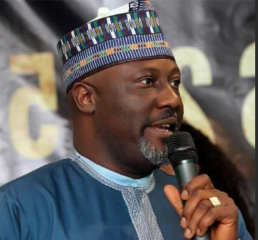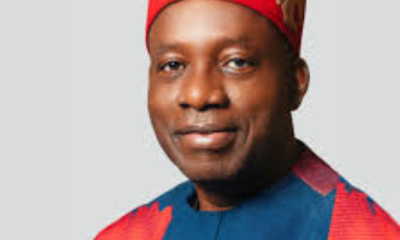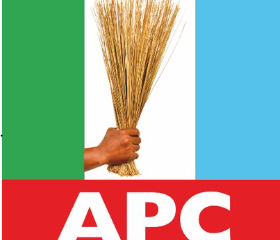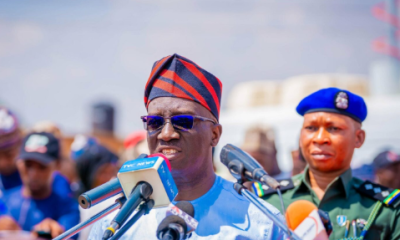Nigerian industries and households are reeling under the heavy burden of rising energy cost, resulting from a combination of factors such as surging power outages, increased tariff by distribution companies and high prices of diesel and gas.
Several parts of the country are already experiencing lengthening power outages, forcing industries, telecoms companies, hotels, SMEs and households to spend more money on alternative energy sources such as gas, diesel and fuel, whose prices have recently risen significantly.
SME and hotel operators who spoke with National Daily said their production costs have risen by more than 20 per cent in the last two to three months on alternative energy spend.
Incomes of households are contracting on rising power cost, while Nigerian manufacturers have been forced to float Power Development Company Limited, which is being managed by the Manufacturers Association of Nigeria (MAN).
The project is currently serving two industrial clusters- Henry Carr in Ikeja, and the Amuwo Odofin industrial clusters (both in Lagos State)- at the moment, out of 24 other sectors.
According to a source in MAN, the project was necessitated by rising power outages in industrial clusters, stressing that manufacturers spend between 30 and 40 percent or more on alternative power sources.
He said that MAN targets 60 to 100 megawatts of electricity through this project.
Another official said that the power company was set up as a special purpose project, saying that the board of the firm is already discussing with vendors and clusters.
Manufacturers and businesses are currently haunted by high gas prices, resulting from dollarisation and scarcity of the product.
Some firms like Fidson Healthcare Plc have resorted to the use of compressed natural gas to remain afloat.
“Shell controls this entire area. But there is no gas running through its pipe now. So what we have done is to resort to the compressed natural gas. If we had had a good power supply system, we would not have spent N125 million,” said an official of Fidson Healthcare Plc.
Telecoms are also hard hit as experts expect upward movement on over N500 billion they spend on powering base stations.
Since February, residential consumers who use single and three-phase meters in the houses and residences, classified as R2 under the area covered by Abuja Electricity Distribution Company (AEDC), have been paying N23.51kWh against the old rate of N13.91 kWh.
Their counterparts in Eko and Ikeja electricity distribution pay N10 kWh and N8 kWh more respectively in their energy charges.
Consumers in the two zones, consisting residents in southern part of Lagos state and Agbara in Ogun state, as well as northern segment of Lagos State, are currently paying N12.87kWh and N13.61 kWh respectively.
Despite these charges, power is scarcely available in many homes four hours in a day, prompting them to use more of fuel and diesel.
Electricity consumers in Kaduna and Benin electricity have also been paying N11.05 kWh and N9.26 kWh more, respectively.
Nigeria’s power supply which currently hovers around 2500MW according to data posted on Nigeria electricity system operator website this week is threatening to grind Nigeria’s beleaguered manufacturing industry.
A recent KPMG report on sub-Saharan Africa Energy Outlook for 2016 identified transmission as the weakest link in Nigeria’s power value chain, calling for a shift of investments from power generation to transmission infrastructure characterised by weak lines and failing national grid.
“The problem of failing national grid has buttressed the long overdue necessity to aggressively develop off-grid and mini –grids, so there will be less dependent on the national grid,” said Friday Ameh, energy analyst.
Nigeria’s national grid collapsed 16 times between January and July this year and against this backdrop, the failure to create a framework for micro grids investments in industrial clusters by the Nigerian Electricity Regulatory Commission (NERC) has intensified calls for alternative energy solutions, chiefly solar power.
Industry operators have called on the federal government to encourage alternative energy investment by removing duties on solar power infrastructure which increases the cost of setting up the alternative energy source for industrial use.
Countries have been able to maintain a productive manufacturing sector by diversifying their energy sources. Indonesia utilises solar, gas, coal, wind, geothermal and wind to provide power for the citizens. The country has a target to provide 25 per cent of all her energy needs from alternative energy.
“Solar is not captured under critical areas that can access foreign exchange at CBN rate. Batteries, the more expensive component of every solar installation, has 20 per cent custom duties, while solar panel is 5 per cent. If energy is critical to the nation, why don’t we make it all zero percent? This is further going to drop down the cost of deployment,” said Ameh.














 Entertainment5 days ago
Entertainment5 days ago
 Comments and Issues1 week ago
Comments and Issues1 week ago
 Comments and Issues1 week ago
Comments and Issues1 week ago
 Health7 days ago
Health7 days ago
 Comments and Issues1 week ago
Comments and Issues1 week ago
 Health4 days ago
Health4 days ago
 Football7 days ago
Football7 days ago
 Football7 days ago
Football7 days ago
